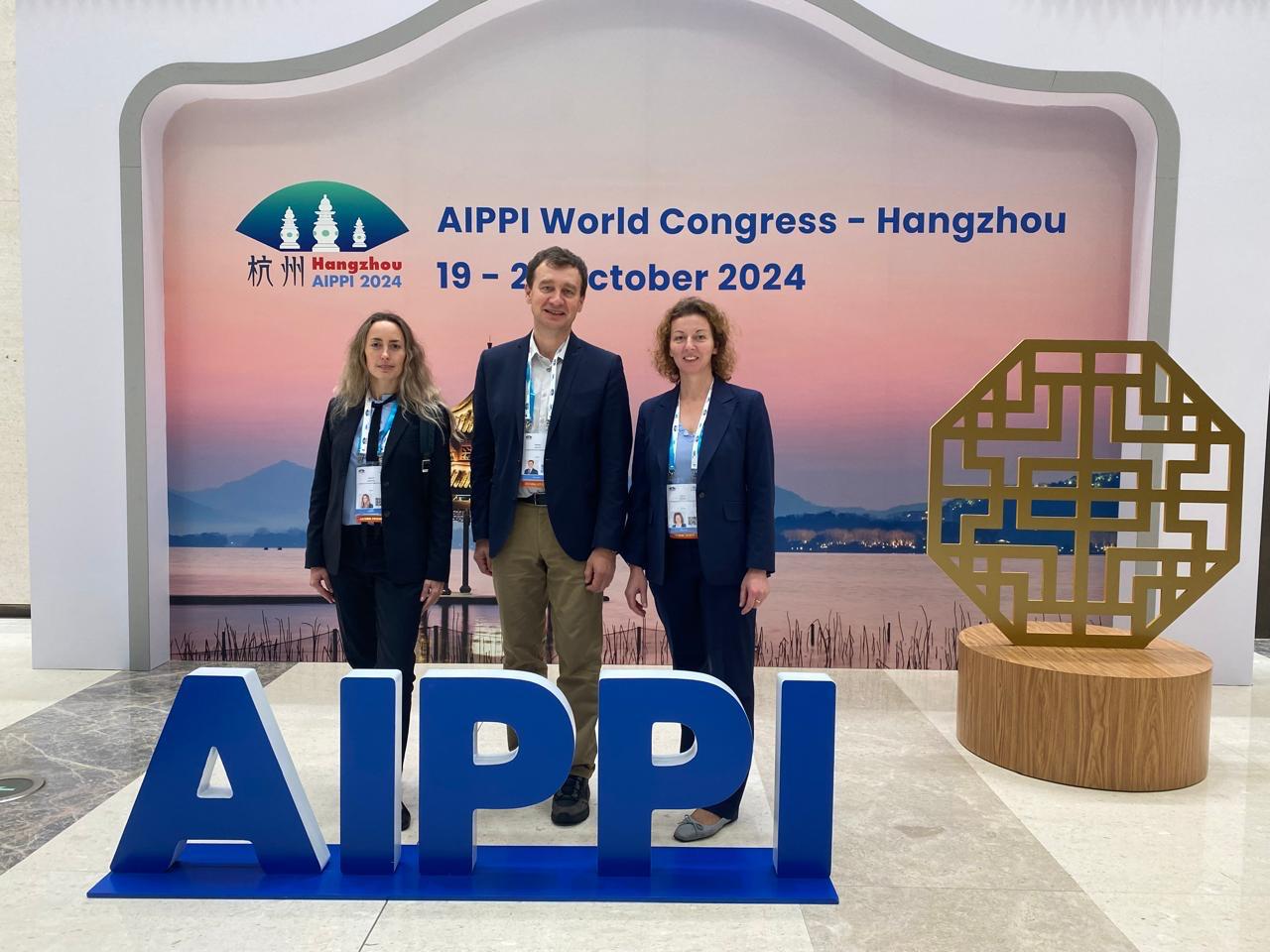On October 19-22, 2024, the annual International Congress of the oldest international non-governmental organization AIPPI was held in Hangzhou (China). This year, the Congress gathered about 2,300 experts from different countries in the field of intellectual property rights protection.
At the opening, a message from the Chinese President Xi Jinping to the participants of the Congress was read out, representatives of the administration of Zhejiang Province spoke, and General Director of WIPO Daren Tang made a video message.
Since the main goal of AIPPI is to work in harmonizing the legislation of different countries in the field of intellectual property on the most problematic issues, each year the adoption of at least four resolutions on the main topics is discussed at the congress: patents, trademarks, copyrights and the so-called «general» issue, which is usually related to procedural issues or other general issues of judicial protection of intellectual property rights.
This year, resolutions on the following topics were discussed and adopted: Q289 - Harmonization of disclosure requirements and consequences of non-compliance; Q290 - Conflicts between composite trademarks, including non-distinctive elements; Q291 – Defense of parody in copyright; Q292 - Unsubstantiated claims of infringement of IP rights. Partners of «A.Zalesov & Partners» the Patent & Law Firm - Aleksey Zalesov, Irina Ozolina and Maria Makhlina - prepared the report of the Russian national AIPPI group on liability for unsubstantiated claims of IP rights infringement and participated in the discussion and adoption of this resolution, which raised important questions about whether the IP right owner who sent out unsubstantiated claims should be responsible for his actions, in particular in which cases should a claim be considered knowingly unsubstantiated, should only subjective factors be taken into account (the right holder knew or should have known about the unsubstantiated nature of his claims) or objective factors (regardless of the knowledge of the right holder, he should be responsible for the fact that the claim turned out to be unsubstantiated as a result of the dispute). During the discussion of the resolution, attention was drawn to the fact that legal provisions and judicial practice should be formulated in such a way as to encourage the right holder to investigate the issue of the validity of his rights and the existence of an infringement as fully as possible before submitting a claim, since if practice follows the path of an exceptionally limited subjective criterion (the right holder knew that the claims were unsubstantiated, but not «should have known»), then there will be no incentive for the right holder to conduct a preliminary study of the validity of his claims.

A video about the congress, as well as more detailed information about the program, are available via the link.